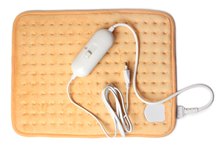Tennis Balls to Reduce Neck Tension
When you have a pain in the neck -- literally -- it could be caused by tension. Tension can set off a chain of events that leads to soreness at trigger points, which sometimes feels like knots in a muscle. When tension in your neck causes over-activity in the fascia of your muscles, a tennis ball pressed against the sore area can often reduce the tension and make the pain go away.
How Fascia Works
Your muscles are surrounded by connective tissue, called fascia, which is a network of elastin and collagen fibers and fluid. Fascia literally holds your body together. This important work sometimes goes into overdrive when emotional or physical stress puts tension on a muscle. Reinforcements to the muscle can cause myofascial congestion -- or the development of trigger points.
- Your muscles are surrounded by connective tissue, called fascia, which is a network of elastin and collagen fibers and fluid.
- This important work sometimes goes into overdrive when emotional or physical stress puts tension on a muscle.
Myofascial Release
Tennis Ball Exercises to Relieve Tight Paraspinals
Learn More
Tennis balls can provide myofascial release through myofascial therapy. You can perform self-myofascial release by placing a tennis ball on the tender area and leaning against a wall or the floor to apply light pressure until you feel the release. Or you can put two tennis balls in a sock, leaving a small space between the balls, and tying the open end closed. Lie on the floor and put the tennis balls behind your neck, one on either side of your spine. Press your neck against the tennis balls until you feel the release. Do not press hard enough to cause pain.
- Tennis balls can provide myofascial release through myofascial therapy.
- You can perform self-myofascial release by placing a tennis ball on the tender area and leaning against a wall or the floor to apply light pressure until you feel the release.
Related Articles
References
Writer Bio
For Judy Kilpatrick, gardening is the best mental health therapy of all. Combining her interests in both of these fields, Kilpatrick is a professional flower grower and a practicing, licensed mental health therapist. A graduate of East Carolina University, Kilpatrick writes for national and regional publications.









